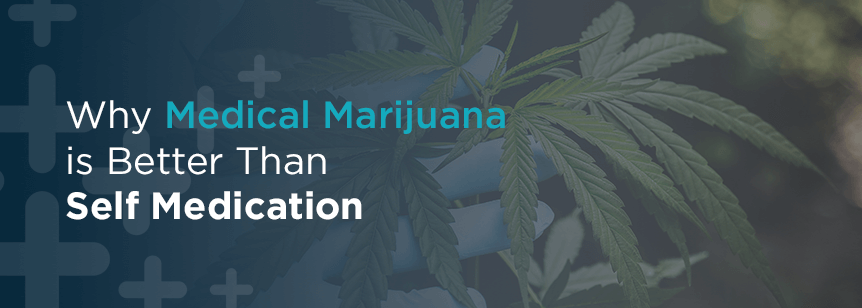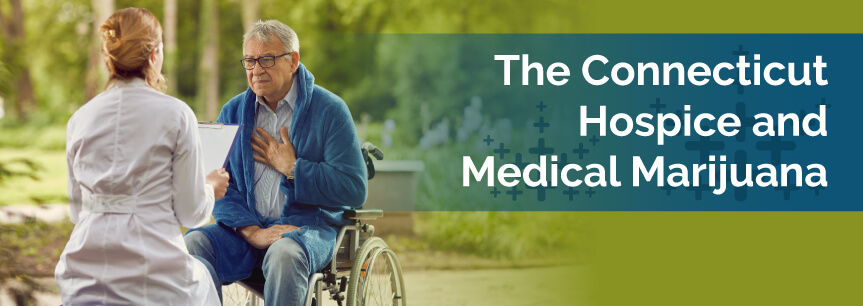The term “self-medicating” is used to describe someone who takes a medication or substance to relieve themselves of symptoms related to a physical or psychological condition, without a prescription or medical advice.
People don’t always realize they’re self-medicating. For example, people who smoke cannabis after work to relax, or drink a nightcap to sleep, may actually be self-medicating for conditions such as anxiety and sleep disorders without realizing it.
Millions of Americans suffer common ailments such as sleep disorders, chronic pain, mental illness, and anxiety (the most common mental illness of all, affecting 18% of the population) and among the undiagnosed, there’s rampant use and misuse of substances such as alcohol, marijuana, opioids, prescription medication, and street drugs.
It’s not all bad; self-medicating may have its benefits. Namely: decentralized access to medication (and therefore, more relief for patients), patients who play a more active role in their own care, and a reduced burden on physicians, pharmacists, and government services linked to the treatment of minor health conditions.
However, the risks associated with self-medicating likely outweigh these benefits. They include incorrect self-diagnosis, delays in seeking medical advice, dangerous drug interactions, incorrect administration and dosage, masking of more severe conditions, and a high risk for dependency and abuse.
With the exception of (non-smokable) marijuana, studies show that self-medicating with almost any other substance—including prescription drugs, opiates, and frequently-abused alcohol—can be detrimental to your health. This is because of the damage these substances do to the brain, heart, and liver.
On the other hand, while marijuana is commonly misused and abused, people often use it to self-medicate. Oddly, this is true even in states where medicinal marijuana is legal. People cite inconvenience, fear of being judged, and other reasons for not consulting their physician.
However, cannabis has a potential role to play in treating chronic pain, stress and anxiety, insomnia, and psychological conditions such as clinical depression—and, among the medical community, has been noted as a possible contender for helping solve the opioid crisis.
If you’re already self-medicating with marijuana, you may be wondering what point there is in seeking a prescription from a medical doctor. You might think this is just more hoops to jump through. But even in recreational states it can be beneficial to seek treatment from a medical marijuana doctor—to get the best advice, the best products, and often, the best prices. Consider that getting yourself treated for your condition with the legitimate aid of a physician can be a much more effective and efficient process than turning to uncontrolled methods and unreliable sources.
Here are three reasons to seek out medical marijuana over self-medicating (with almost any other substance):
You’ll get prescribed the right medicine.
Not all cannabis is the same. Doctors who recommend medical marijuana will be able to find the best strain and administration method for your specific condition. Each strain has a slightly different ratio of tetrahydrocannabinol (THC) to cannabidiol (CBD), among other qualities. The Terpene content is another difference. These compounds are found in plant oils, including cannabis, and are believed to have therapeutic effects. While one strain may work wonders for your condition, another strain could indeed make it worse.
How you take your medication is also important. Cannabis can be smoked, vaporized, or made into an edible or tincture. If you go the medical marijuana route, you’ll be able to purchase the correct strain for your specific medical condition, along with your preferred method of application.
You can get the dosage right.
When you’re using marijuana recreationally, you probably aren’t mindful of how much cannabis you’re consuming; you’re just going with the flow. When you fill a prescription, the pharmacist must make sure you’re getting the correct drug and dosage. Similarly, when you fill a medical marijuana prescription with a Licensed Producer (LP), you can be sure that the strain you purchase matches the THC level recommended by your doctor.
In some cases, you may be taking too little and not getting the full benefits. In other cases, you may be taking too much, have decided you didn’t like the effects, and given up on this kind of medication. Finding your optimal dose of cannabis is necessary for optimal relief.
Since a medical marijuana doctor is both an expert in your condition and in cannabis-based medicine, he or she will be able to help you find the best dose for your specific complaint.
You’ll get a consistent, quality experience.
When you self-medicate, you’re likely buying from a friend, Joe Schmo on the street, or from some kind of illegal dispensary. Since these sources are not regulated, their cannabis will lack consistency. This means your medicine may work one time, but not the next.
Since medical dispensaries are regulated by the state, the products they sell are required to be safe, reliable, and high-quality–consistently. If you’re interested in using medical marijuana, we encourage you to find a doctor in your area, and keep up to date with medical cannabis news by signing up for our newsletter.
About the Author
Sarah A Lybrand is a writer specializing in lifestyle, health, finance—and fun. She’s written for Bust, Juno, Yahoo, MarketSmiths, and Toast Media, among many others.






